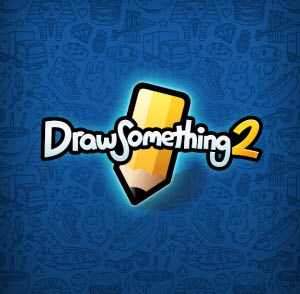David Ko, the No. 2 executive at Zynga, might not be really popular right now. Yesterday, during Zynga’s earnings call, he announced that the social-game company had eked out a profit, but it is canceling four existing games. It has also shelved two unannounced titles as part of an effort to cut costs and be more disciplined about its strategy to focus on franchises, networks, and profitability. His decisions are bound to affect employees as well as the fans who have stayed loyal to those games even as they decline in numbers of users.
 But Ko, Zynga’s chief operations officer, has put up the “guard rails” that the company’s investors have demanded. He said the company is cutting weak-performing games which were once big titles for Zynga: The Ville, Empires & Allies (pictured), Dream Zoo, and Zynga City on Tencent. Cuts that took place last quarter led to a reduction in Zynga’s total staff by 156 people, with the company’s roster now at 2,902 employees. Ko didn’t say if more are to come, but he says the company is being more disciplined moving forward.
But Ko, Zynga’s chief operations officer, has put up the “guard rails” that the company’s investors have demanded. He said the company is cutting weak-performing games which were once big titles for Zynga: The Ville, Empires & Allies (pictured), Dream Zoo, and Zynga City on Tencent. Cuts that took place last quarter led to a reduction in Zynga’s total staff by 156 people, with the company’s roster now at 2,902 employees. Ko didn’t say if more are to come, but he says the company is being more disciplined moving forward.
Meanwhile, it’s worth noting that Zynga is no longer the largest social-gaming company. Zynga said it now has 52 million daily active users, but London’s King, riding high on Candy Crush Saga, has 66 million. But Ko acknowledged there will be short-term difficulties for Zynga during its transition in 2013 and that the company is making sacrifices so it can increase product quality and grow more in the future, particularly in mobile games. He noted that the company just launched Draw Something 2 with the hopes of recapturing a big audience for that title on mobile devices. Zynga is also unveiling new titles in “midcore” games like War of the Fallen and Battle Stone.
We interviewed Ko yesterday after the earnings call. Here’s an edited transcript of the conversation.
GamesBeat: Can you talk more about the reasons for canceling four games? These titles, like Empires & Allies, once had tens of millions of users. Their rise was rapid, and now it seems the decline is, too. Why cancel them?
David Ko: These are always difficult decisions, but this is part of us continuing to be disciplined. A lot of this revolves around staying true to what we believe in as far as strategy and staying committed to that as a company — building franchises, supporting the network, and being profitable. In the franchise case, it’s around making sure that we have our best resources and our best leaders on the right teams so that, in essence, we can have the best shot on goal. We’re not saying it’s always going to go in the net, but we are saying that we want to increase our odds and always make sure we have the best shot on goal.
What we’re recognizing is that to do that, you have to make some of these tough calls. While it’s always hard to shut down games that are in progress or games that are live, those calls are made so we can better position ourselves to win in the long term. We’re not playing for the short term right now.
 GamesBeat: It looks like King has moved into first place in terms of daily active users in the social-gaming market. Is that milestone an important one – who has the most users overall?
GamesBeat: It looks like King has moved into first place in terms of daily active users in the social-gaming market. Is that milestone an important one – who has the most users overall?
Ko: The way I look at it is, we have a belief that social gaming is a huge opportunity. Not only from the estimate that it is a $9 billion market but also from what we’re seeing in the marketplace. Competition like this just reinforces the opportunity. My biggest thing is, I want to make sure that we’re confident that you’re going to see more of our franchises in that mix.
GamesBeat: It still looks to me like you guys have the largest work force here, the largest number of people working on digital games. Probably even in mobile. How do you look at whether or not you’re sized in the right way compared to the competition? It almost seems that the laws of probability would suggest that you guys should have a pretty large share of the hits in mobile, but it doesn’t always work that way. [King has 400 employees, but now it has more users than Zynga does.]
Ko: In the last few quarters, you’ve seen that we can be more disciplined in how we think about our costs and our expenses. I think we’ve shown that. We’re going to make hard decisions because we want to make sure we’re investing our resources and our money in the right areas to create games that we believe will be franchises. You know this better than anyone — developing a game is hard. The bar has gone up for the whole ecosystem. That’s why we’ve looked at a multipronged strategy that says we have to build games that are franchises — that set a high bar on quality, social, and accessibility.
One thing that’s going to help in our games is going to be our network. Because of all the games that are being downloaded today, one of the biggest challenges in the ecosystem is discoverability. I’m confident that, by the end of the year, you’re going to see us in a much better position than we are today.
GamesBeat: The investors may have reacted strongly to the second-quarter forecast. Could you explain that a little bit more as to why some of the metrics are weaker and why they might mean that the second quarter is going to be a tough one for you guys?
Ko: The drop-off that you see can probably be attributed to three things. One, we saw decay in our web games. Although it wasn’t as prominent, some of our franchises, like FarmVille, probably did see a bit of a drop. Two, we did shut down some games that weren’t prominent. While we thought they could give us a short-term bump, it wasn’t the best for us in the long term. Three, last quarter we did say we were going to pause our title slate as we focus more on the long-term strategy, and that was going to impact some of our numbers.
What you are seeing, though, is the launch of more games. I expect that pace to pick up over the course of the year. We are not presuming success. What we are saying is that we’re going to take more shots on goal. In our game that we’re launching tonight — Draw Something 2 — we really listened to our players and tried to make it different. We’re going to launch Running With Friends soon. We’re going to launch War of the Fallen and Battlestone. There are a number of other games that are coming out, and we’re going to see how that goes.
 GamesBeat: Is there something about Draw Something 2 that you think is going to draw more attention?
GamesBeat: Is there something about Draw Something 2 that you think is going to draw more attention?
Ko: One of the things we saw is that the brand is very strong. We’ve always said that. When we launched in Sweden and in Canada, we saw strong uptake. We got really great feedback from the community. They liked the changes we made to the game, which are the changes they’ve been asking us for. We have great expectations. We’re excited about the game coming out. We’re excited for our players to play it. Then we’ll see how it goes.
GamesBeat: The cancellations, do they mean that you’re going to redeploy those people, or do you have more announcements coming where you might have to cut back on the staff more?
Ko: We don’t comment on things that we may or may not do in the future. What you’re going to be seeing from us is that we’re going to maintain that discipline. We’ve got a great employee base. They’re really passionate about what they do. We want to make sure they find the right types of opportunities. We’re going to be very softball in that approach.
GamesBeat: Is there any seasonality to the business here? When you see a drop going from Q4 to Q1, is that similar to the rest of the video game business, or is there a different kind of pattern?
Ko: We’ve seen this in prior years, especially in mobile, where you do see a little bit of — whether it’s an uptick in activations because people get new devices or an increase in app sales, you do see some of those upticks. The reality, though, is that if you build a game that people love, those are a little bit less pronounced. We’ve seen that with FarmVille 2. It’s amazing to look at games like Words With Friends. It continues to have a very passionate and loyal following. So it depends on the game, but we do see some of that seasonality.
GamesBeat: Mobile seems like it’s still changing very fast. Are there particular trends that you think you need to jump on? Are there some fads that you can ignore?
Ko: The quality bar continues to increase on mobile. We’re seeing some of the console folks start to move into the mobile space. I do see costs have gone up. That’s why it’s important to have a network because traffic acquisition costs are going higher. We see a lot of people going to tablets, which is great. I see people’s playing times start to fragment across the different platforms. People are playing multiplatform, but it’s a little more fragmented. We’re having to adjust for that and think about the types of experiences we want to offer in that mix that follow what we talked about — fun, social, and accessible. I’m excited about these changes, though. I’m excited about the opportunities, and I’m excited about the games we’re going to be launching.
GamesBeat: You’ve got some experience in real-money gambling now. What are some of the things you’re learning?
Ko: I think what you’re seeing is a couple of things. Last quarter, I told you that we’d launch real-money gaming in the first half of the year. We launched in early April. We launched not only on download but in a real-time version you can play. We’ll be launching on Facebook and mobile later in the year. The vision is to create the most valuable casino-gaming experience for our players.
There’s a lot we don’t know getting into this space because it is complicated. That’s why we are taking a very soft approach to this in the U.K. That’s why we partnered with Bwin. We do see that our players — and Mark [Pincus, the chief executive officer of Zynga] talked about this — when we polled them, they are interested in trying real-money games if they’re offered in the right way. We think there’s an opportunity there. We’re excited to give them that opportunity to play. It’s a little bit of a wait-and-see. We don’t think it’s going to be a significant driver of revenue this year. It’s just very early.
GamesBeat: Phil Gordon’s company, Jawfish Games, just launched a synchronous multiplayer game. They partnered with BigFish on that. I think you guys were working on the same kind of technology for some of your arcade-shooter business. Is synchronous multiplayer going to be arriving very soon?
Ko: I can’t comment on the types of things that we’re doing differently in our games. We are looking at a lot of different styles. It just comes back to our core. We’re pushing teams to make sure that the quality bar is high, to make more social experiences, and to make them accessible. There’s a bunch of different ways to do that. Multiplayer is one of them that you mentioned, whether it’s synchronous or asynchronous gameplay. I can’t comment on that specifically, but we’ll see.
GamesBeat: Any other things that you think need some more clarification from the call today?
Ko: I’m personally encouraged by the early execution we’ve made as a team. We said 2013, for us, is a transition and investment year. We’re continuing to be disciplined and make those tough decisions. We believe there’s a long-term opportunity. By the end of the year, we’re going to be in a good position to win it. This is a first step, and we want to be very transparent and open in this process. We’re excited about the future.
VentureBeat's mission is to be a digital town square for technical decision-makers to gain knowledge about transformative enterprise technology and transact. Learn More

